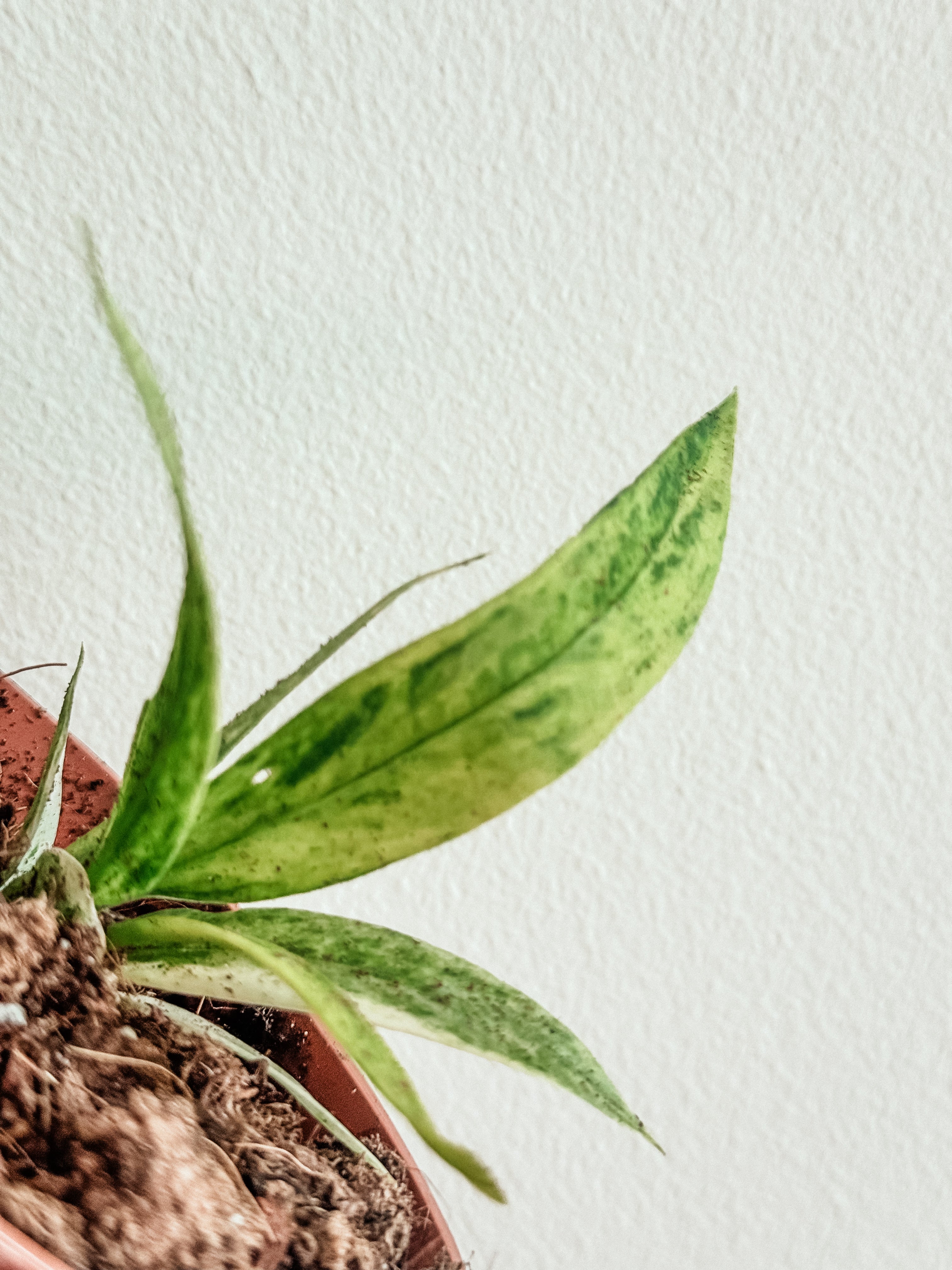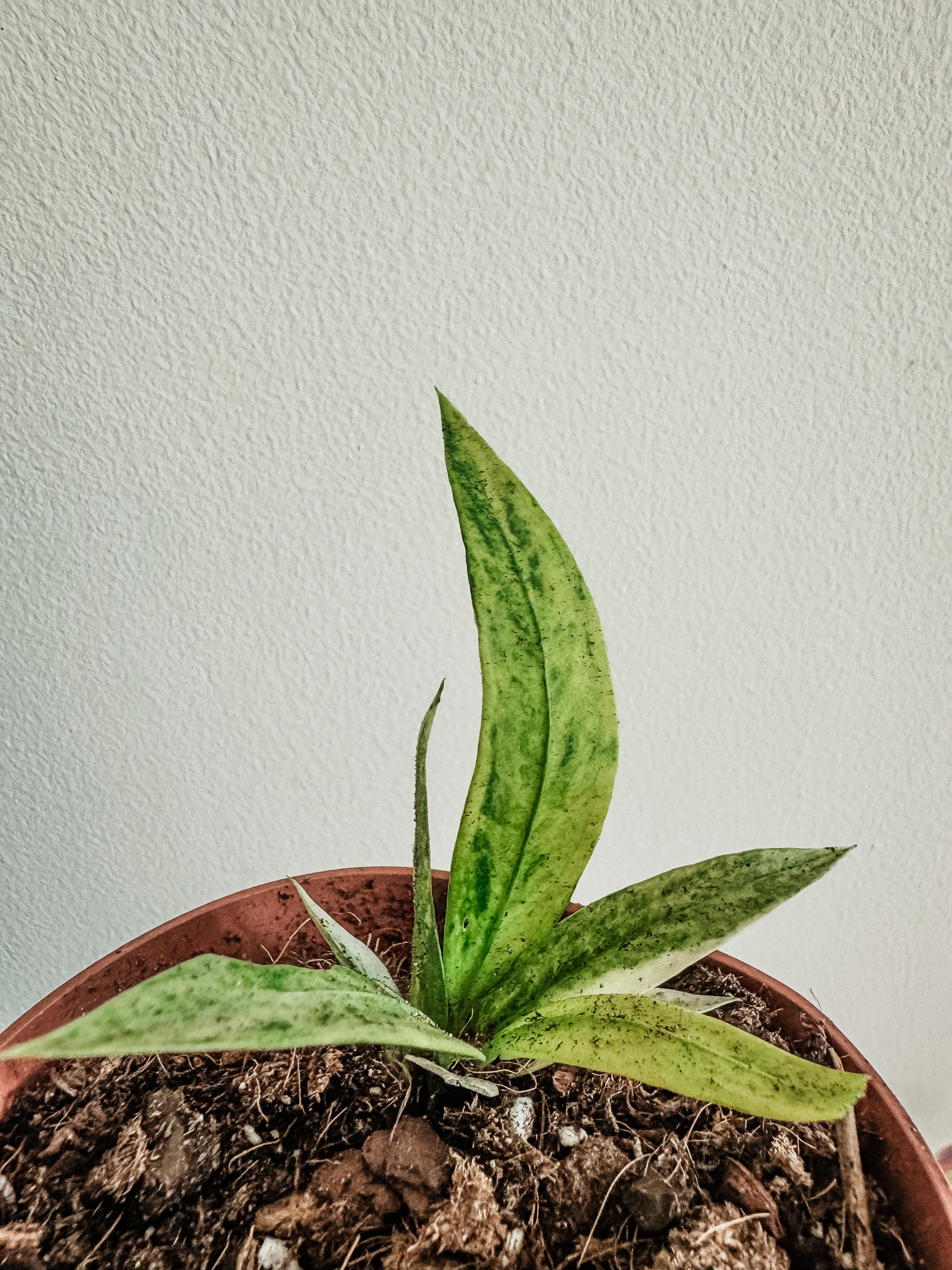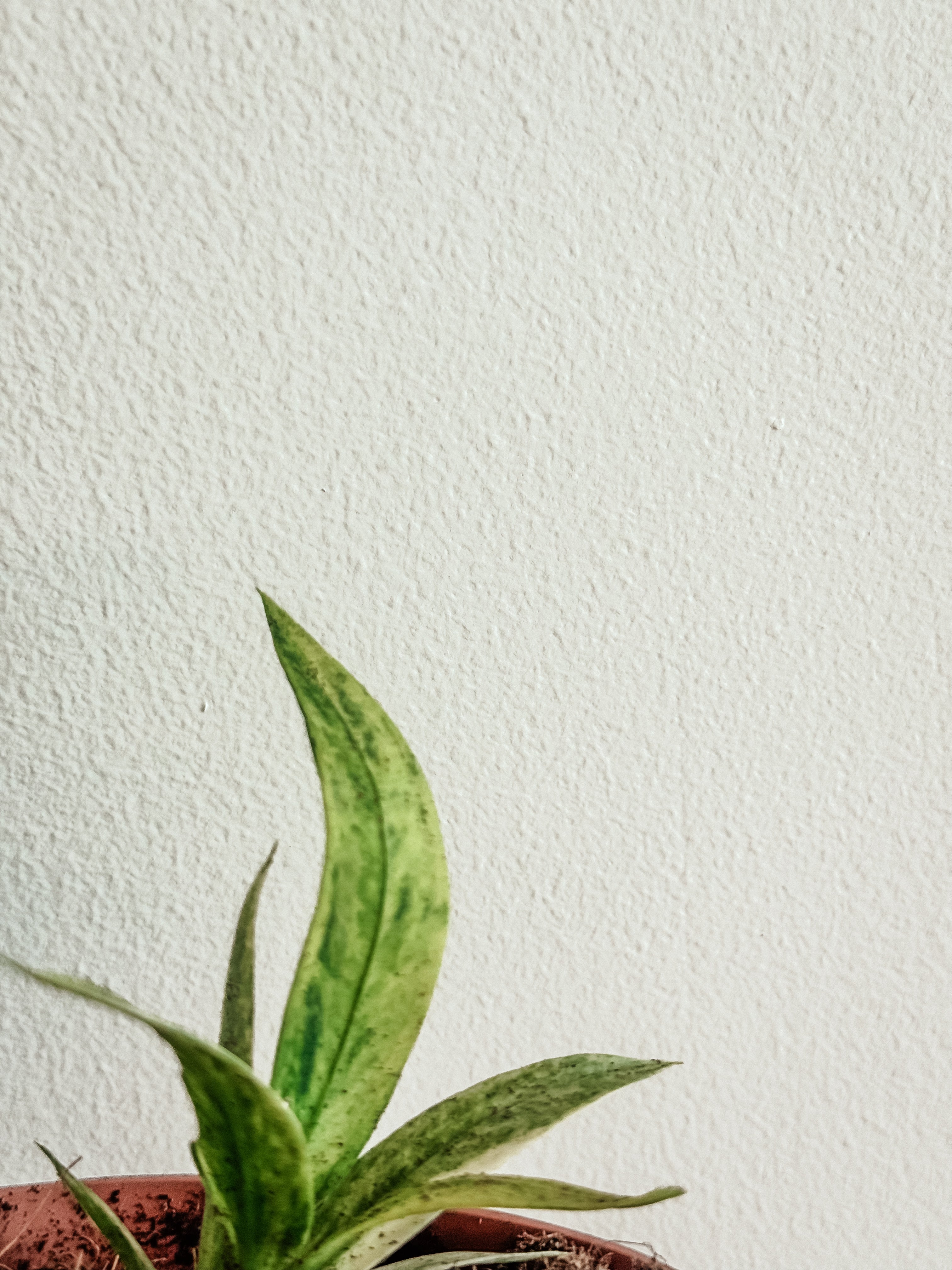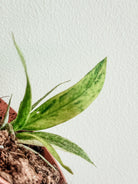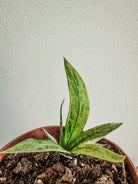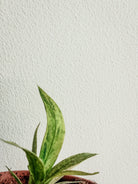Anthurium Vittarifolium Variegated
Couldn't load pickup availability
Anthurium vittarifolium variegated is a rare and stunning plant known for its long, strap-like leaves with creamy-white to yellow variegation. It's a tropical epiphyte, which means it naturally grows attached to trees in humid rainforests. Here’s how to care for it properly:
🌤️ Light
-
Bright, indirect light is ideal. Too much direct sun will scorch the leaves, especially the variegated parts.
-
Avoid low light, which can reduce variegation and slow growth.
💧 Watering
-
Keep the medium lightly moist but not soggy.
-
Allow the top inch of the soil or mix to dry out between waterings.
-
Reduce watering in cooler months.
-
Use distilled or rainwater if possible, especially if your tap water is hard or salty.
🌡️ Temperature & Humidity
-
Thrives in warm, humid environments (65–80°F / 18–27°C).
-
Keep humidity levels above 60%. Ideal range: 70–90%.
-
Use a humidifier, pebble tray, or group plants together.
-
-
Avoid cold drafts or temps below 55°F (13°C).
🌱 Soil / Growing Medium
-
Use a well-draining, airy mix, similar to what you'd use for orchids or other epiphytes.
-
Recommended mix: Orchid bark + perlite + sphagnum moss + a small amount of potting soil or coco coir.
-
-
Optionally, mount it on a plank with sphagnum moss (mimicking its natural habitat).
🍽️ Fertilizer
-
Feed every 4–6 weeks during the growing season (spring–fall) with a balanced, diluted fertilizer (e.g., 1/4 strength).
-
Choose one formulated for aroids or orchids.
-
Avoid over-fertilizing—variegated plants are more sensitive to burn.
✂️ Pruning & Maintenance
-
Prune dead or damaged leaves with sterilized scissors.
-
Wipe leaves occasionally to keep them dust-free.
-
Be gentle with the leaves—they're long and fragile.
🪴 Repotting
-
Every 1–2 years or when roots start circling or growing out of the pot.
-
Choose a pot with excellent drainage.
Special Notes for Variegated Form:
-
Variegated leaves have less chlorophyll, making them more sensitive to:
-
Low light – can cause reversion or fading.
-
Overwatering – variegated parts rot faster.
-
Fertilizer burn – use half the amount compared to regular varieties.
-

